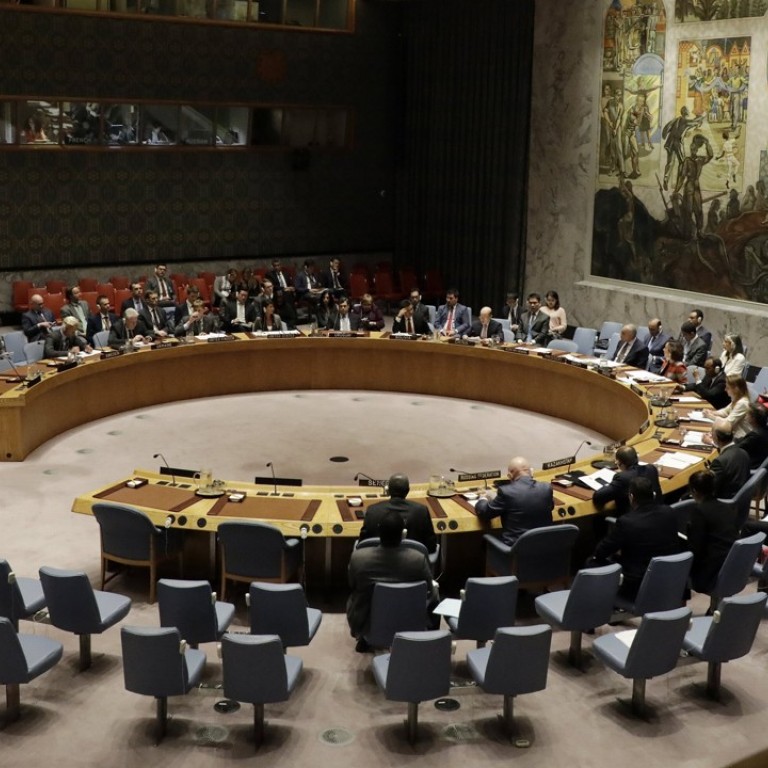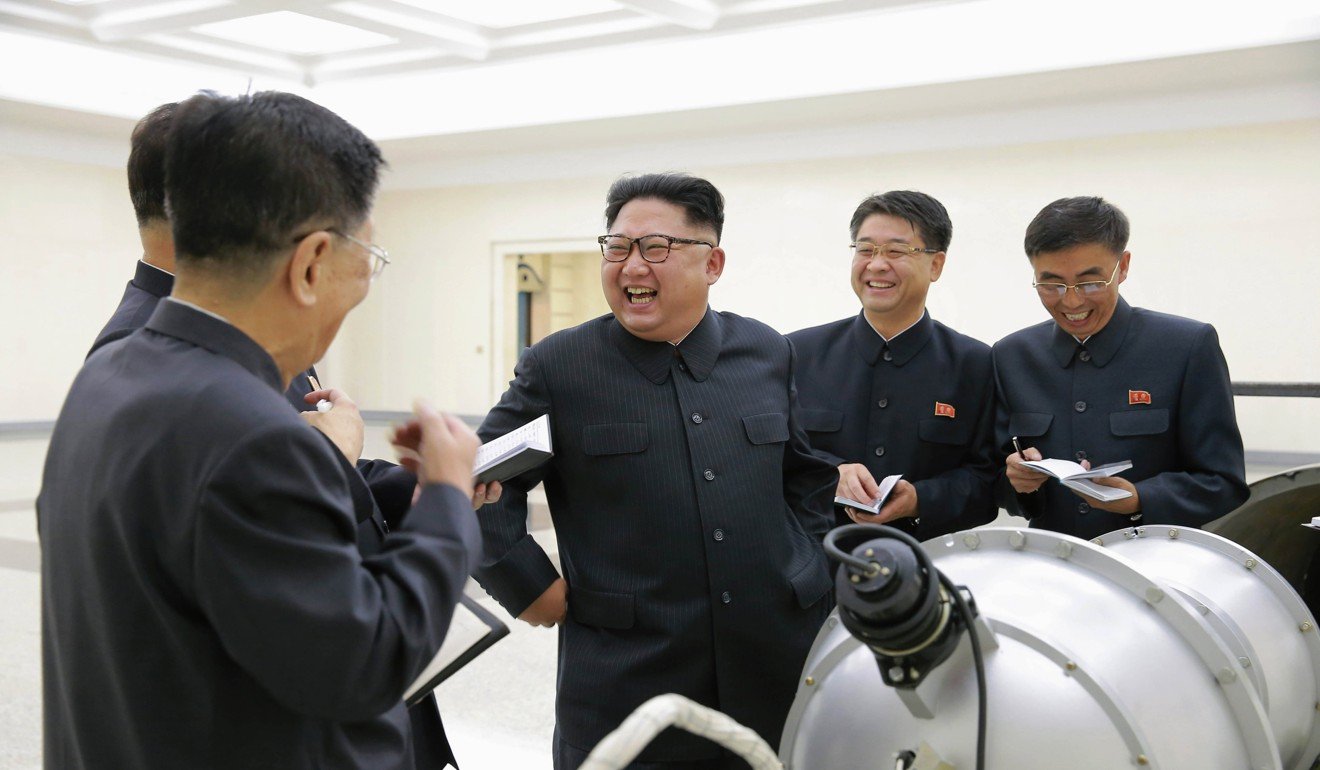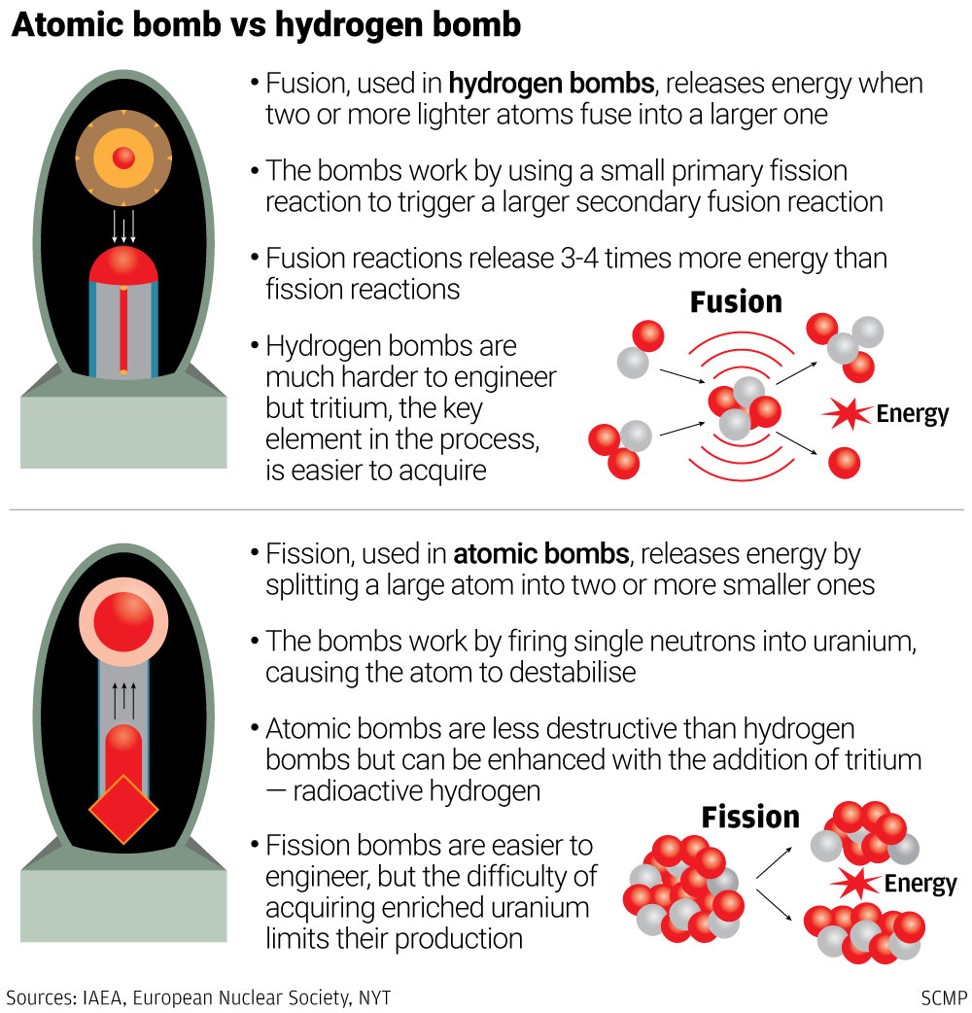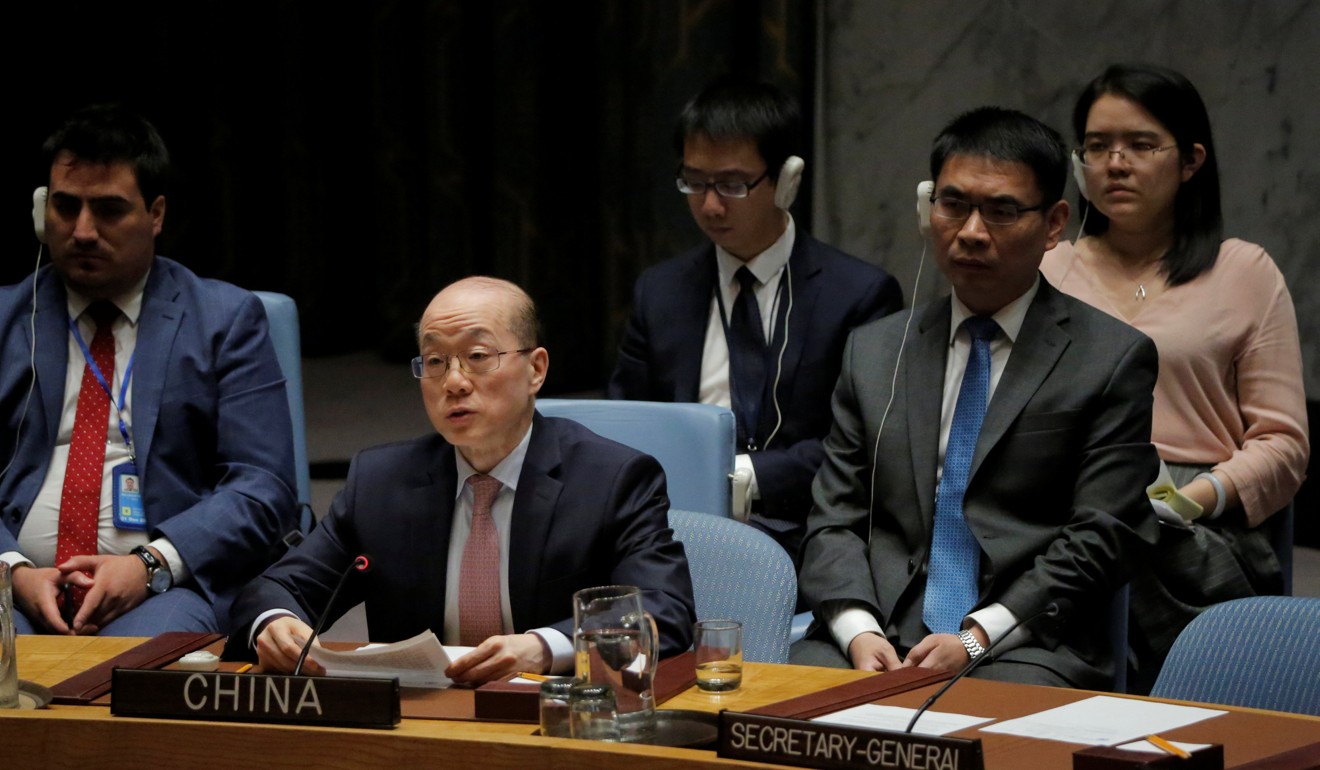
UN Security Council to hold emergency meeting Monday on North Korea blast
North Korea conducted its sixth and most powerful nuclear test on Sunday – in violation of UN resolutions – which it said was an advanced hydrogen bomb for a long-range missile
North Korea is “deliberately undermining regional peace and stability,” the council said Tuesday when it rebuked the missile test, reiterating demands for the country to halt its ballistic missile and nuclear weapons programmes.
The North trumpeted “perfect success” Sunday in its sixth nuclear test blast since 2006.
Requested by the United States, Japan, France, Britain and South Korea, the Security Council meeting Monday at 10am (10pm Hong Kong time) could bring additional condemnation and discussion of other potential steps.

On Monday, Japanese Prime Minister Shinzo Abe and South Korean President Moon Jae-in agreed in telephone talks to seek a new, stronger UN Security Council resolution against North Korea.
Abe said Sunday’s nuclear test, which Pyongyang claimed was of a hydrogen bomb that can be mounted on an intercontinental ballistic missile, is “a head-on challenge to the international community,” according to Deputy Chief Cabinet Secretary Yasutoshi Nishimura.

Moon was quoted by his spokesman, Park Soo-hyun, as telling Abe of “the need to cooperate with the international community to come up with strong and effective punitive measures, which North Korea would feel are different in nature from the previous (penalties).”
Both Abe and Moon have also held telephone talks with US President Donald Trump in recent days to affirm close coordination among the allies over the threat posed by North Korea.
British Prime Minister Theresa May called in a statement Sunday for speeding the implementation of existing sanctions and “looking urgently” at new measures in the council.

The group aimed to take a big bite out of the North Korean economy earlier this month by banning the North from exporting coal, iron, lead and seafood products. Together, those are worth about a third of the country’s US$3 billion in exports last year.
The council could look to sanction other profitable North Korean exports, such as textiles. Another possibility could be tighter limits on North Korean labourers abroad; the recent sanctions barred giving any new permits for such workers. The US also suggested some other ideas earlier this summer, including air and maritime restrictions and restricting oil to North Korea’s military and weapons programmes.
However, Russian Ambassador Vassily Nebenzia told the council Tuesday that “addressing the issues plaguing the (Korean) Peninsula through sanction pressure alone is impossible” because “that path does not propose any options for engaging (North Korea) in constructive negotiations.”
Russia and China have both proposed a two-pronged approach: North Korea would suspend its nuclear and missile development, and the US and South Korea would suspend their joint military exercises, which they say are defensive but Pyongyang views as a rehearsal for invasion. The North recently requested a Security Council meeting about the war games.
Washington says there is no comparison between its openly conducted, internationally monitored military drills and North Korea’s weapons programmes, which the international community has banned.
Neither North Korea nor South Korea is a Security Council member.
Associated Press, Kyodo, Reuters
